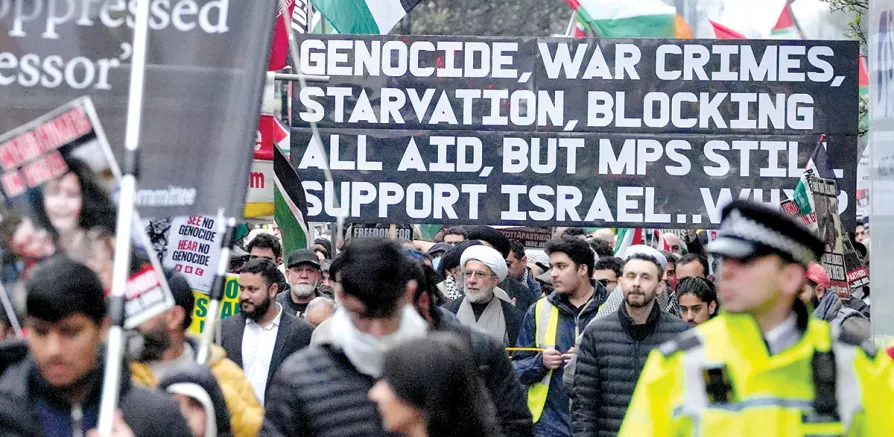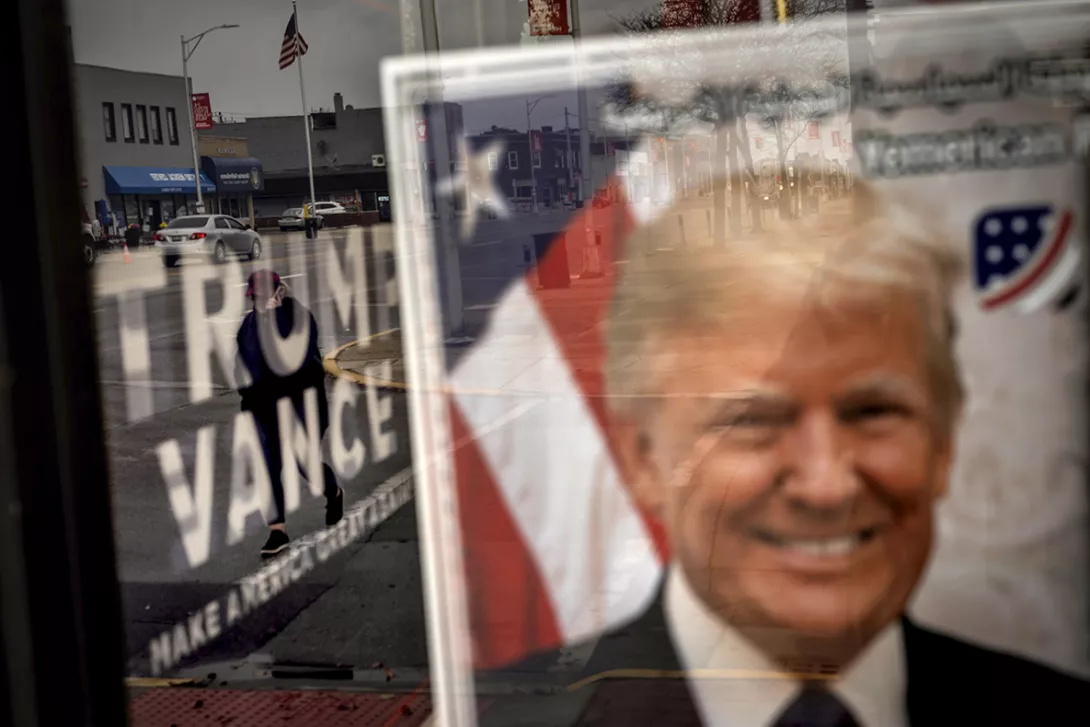
THE US election result raises the spectre of Trump renewing the assault on Venezuela that his loss to Biden interrupted in 2020.
In office between 2016 and 2020, Trump’s approach to Latin America showed an implacable hostility towards Venezuela, as well as other governments in the region determined to advance their population’s interests, not those of the US.
Venezuela has been subjected to US extraterritorial intervention and interference for over two decades. From the early days of Hugo Chavez’s election as president in 1998, the US has sought, in conjunction with Venezuela’s economic and political elites, to topple the Venezuelan government and re-establish its control and influence over the country and its oil wealth.
Direct sanctions were first applied against Venezuela by President Obama in 2015 and justified by bizarrely deeming Venezuela an “unusual and extraordinary threat to the national security and foreign policy of the US.”
But Trump ramped up these illegal coercive sanctions into a series of increasingly severe measures against individual government members and the country as a whole. Starting in 2017, Trump barred the Venezuelan government from borrowing from financial markets, blocked assets, and prohibited US businesses from dealing with Venezuela’s oil company, PDVSA, the state’s largest source of revenue.
The effect of putting a chokehold on the Venezuelan government and its economy has been very severe. Loss of confidence meant that foreign companies started pulling out, disrupting supplies of essential goods. Foreign banks became reluctant to handle transactions involving Venezuela. It became impossible to repatriate dividends from Citgo Petroleum, the US-based subsidiary of Venezuela’s oil company.
The disruption to Venezuela’s reliance on oil exports, by cutting PDVSA off from international markets and blocking it from servicing debt, cost Venezuela billions of dollars in revenue as Trump ramped up the sanctions programme into a blockade akin to that imposed against Cuba since the 1960s.
Although Venezuela’s economy is now making a recovery, at the time, the resulting loss of oil income was extremely damaging, impacting hardest on the poorest and most vulnerable, as UN human rights rapporteurs testified.
However, economic sanctions were — and still are — only a part of the US offensive against Venezuela. Cyber warfare was part of the arsenal: a CIA-led cyber-attack on the state-run payroll system for Venezuela’s military, for example, created dissatisfaction at a pay hold-up.
Similar cyber-attacks followed on the country’s electricity supply and, notably, on the National Electoral Council and its website around the July 2024 presidential election in Venezuela.
Trump oversaw other destabilising strategies, too. He supported the declaration by minor politician Juan Guaido as “interim president” in January 2019, welcoming him at the White House and his State Union of the Address, and in March 2020, charged Maduro with “narco-terrorism” and offered a US$15m reward for his capture as part of his “maximum pressure” strategy.
Ultimately, Guaido’s attempt at overthrowing President Maduro failed dismally, as did US-funded mercenary attacks in 2020 and 2024, aiming to assassinate or capture President Maduro.
Nor has the US overlooked using more potent forces than bands of mercenaries to topple Maduro and bring Venezuela to heel. In 2017, Trump stated: “We have many options for Venezuela, and by the way, I’m not going to rule out a military option.”
Two years later, he reiterated it was still an option, around the time the US Centre for Strategic and International Studies think tank hosted a top-level, off-the-record meeting to explore US military options against Venezuela.
Invitees and participants included some of the most influential people advising Trump on his Venezuela policy: current and former State Department, National Intelligence Council and National security council officials; representatives from Guaido’s “shadow government”; and the former commander of US Southcom.
Those present included attendees from the US Agency for International Aid and Development, a leading agency in the Trump administration’s attempts to destabilise Venezuela’s government through funding Venezuelan opposition political, media, and civil society groups to the tune of $45-50 million per year.
While the global situation has changed since 2020, with wars in Ukraine and the Middle East and the US’s developing aggressive strategy towards Russia and China, there is no reason to believe the US’s long-standing desire to destabilise the Venezuelan government and achieve “regime change” is off the table.
For his part, Trump made it plain when campaigning this year in North Carolina what motivated his drive to unseat Maduro: “When I left, Venezuela was ready to collapse. We would have taken it over; we would have gotten all that oil.”
The solidarity movement in Britain must be prepared to defend Venezuela’s sovereignty against any renewed offensive by Trump when he assumes the presidency in 2025 — as well as continuing to campaign for Britain to give Venezuela back its gold.
Join the Venezuela Solidarity Campaign at www.venezuelasolidarity.co.uk.

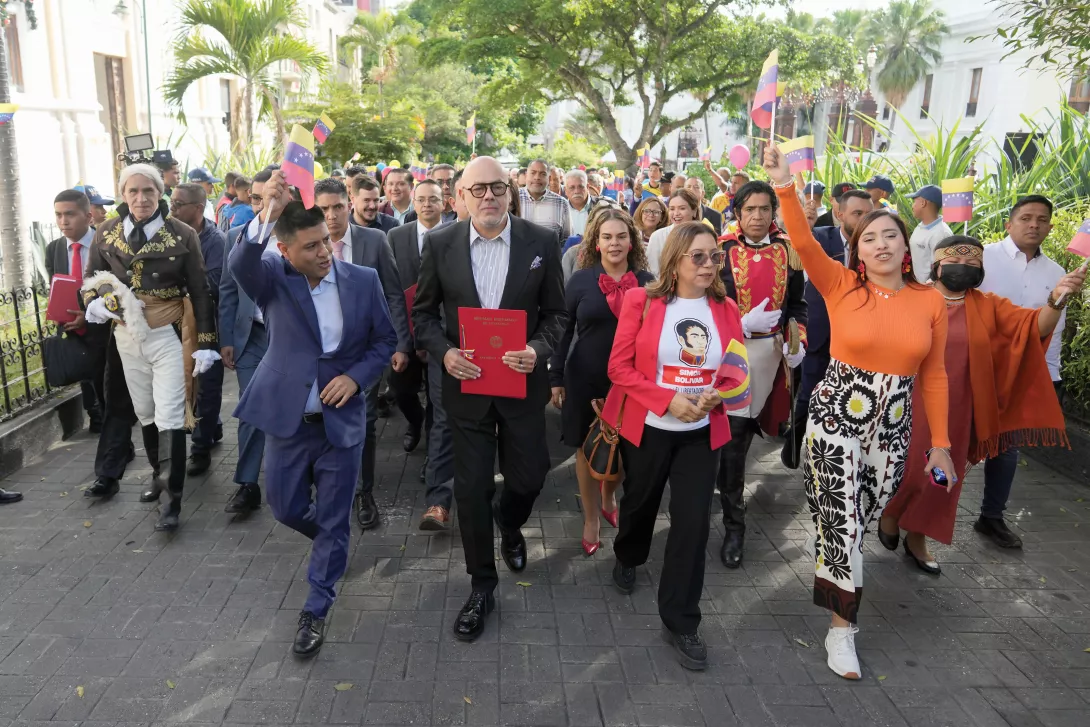

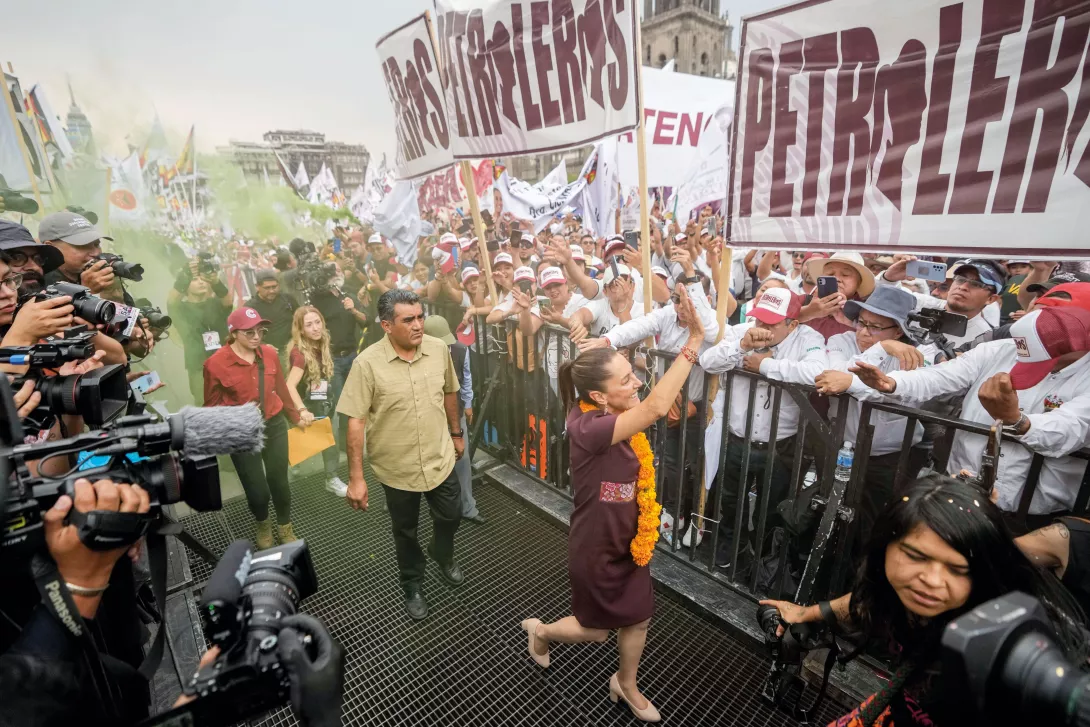


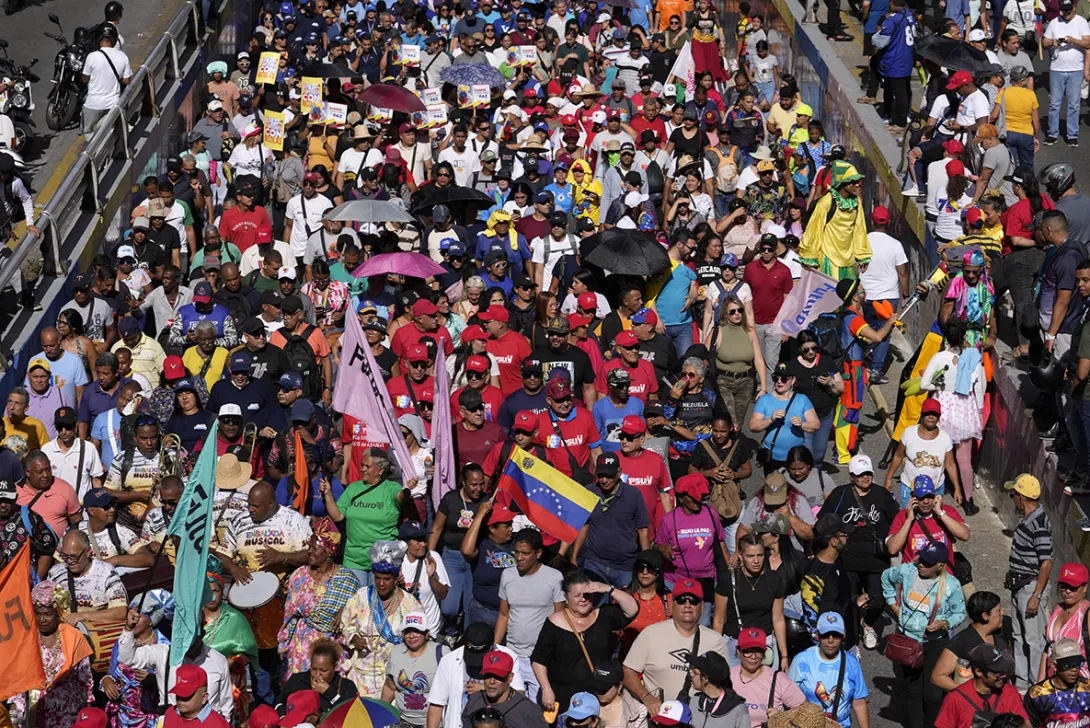
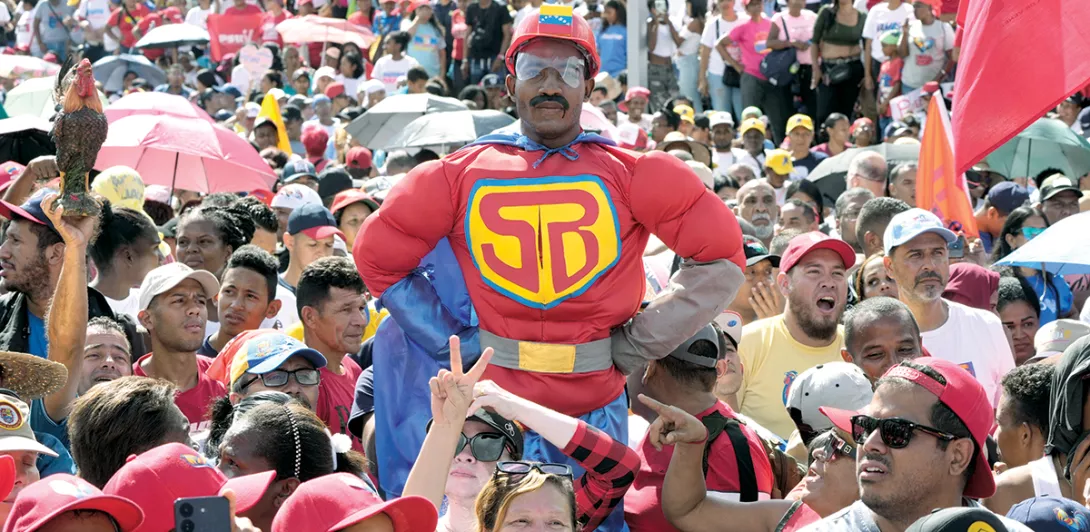


 Latest editorial
Latest editorial
